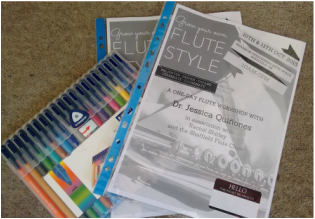 When I'm not doing musical things, one of the ways I like to spend my time is gardening. Don't ask me about flowers - I have a few favourites but I don't know much about them - what I really enjoy is growing food. From a few herbs and chilli plants on a flat windowsill, via a back garden vegetable patch, I now have an allotment - a source of much joy, frustration, hard work and satisfaction... a bit like music, but with added mountains of potatoes! One of the topics of discussion at our recent workshops with Dr Jessica Quiñones was what your passions outside music are, and it turned out there were a lot of flute players who like to grow things. We're also quite a crafty bunch - knitting, sewing and baking - creative in all sorts of ways! But let's backtrack for a moment - how did a load of flute players end up sitting in a room talking about gardening? Sometime last year, I came across Jessica online - I can't remember whether it was through Twitter first, or through her blog. I was intrigued by her passion for Tango music, and immediately taken with her fresh approach to flute playing. I read a lot about the technical side of playing, about practising, and about performing, but here was a lady who was talking about shaking up the way you think about making music, about finding your own way of doing things, breaking out of the 'box' of traditional expectations around flute playing, and really sharing your music from the heart. As I began to teach more and more adults, I realised that many of them felt 'stuck' in a pattern of feeling that they 'should' play a certain way, worried about having to 'get it right', and it was getting in the way of them making music the way they really wanted to. Lots of them wanted to try playing folk or jazz or latin, or all sorts of different styles, but they didn't know how to make that step into it, having only played classical music. Now, a big part of my teaching ethos is to encourage people to experiment - not to tell them there is one 'correct' way of doing things, but to help them explore different ways that might work for them. But I also believe that an important part of teaching is knowing your own limitations, being open about the fact you don't know and can't do everything(!), and helping your students to access other ways of learning and people who can give them fresh and different approaches to music. So when I started thinking about running some flute events in Sheffield, I absolutely knew that one of the people I wanted to invite was Jessica. I emailed her asking if she'd be interested, and to my delight (because it's always a bit scary emailing someone you've not actually met to ask them to do something) she was really keen on the idea. More than keen, she absolutely 'got' what I wanted to achieve by putting on this event. One thing we were both clear on from the start was that we weren't putting on a 'traditional' masterclass. You know, one of those days where you stand up and play a piece in front of an 'expert' who then tells you how to improve it and gives you helpful suggestions on interpretation and technique. These have their place, but I feel they can often be intimidating, even downright scary. There can be a sense that you're trying to prove yourself and impress the expert and the other attendees, that it's a competition to see who can play best up there. Sometimes the advice is useful on the spot, but you don't really know what to do with it once you leave. Often it seems that people go along wanting a 'quick fix' to their problems - for someone to tell them "do this and your tone will forever be wonderful". Unfortunately, there are very few, if any, quick fixes in playing an instrument. The same goes for confidence, nobody can magically instil that in you in a day, or even a year of lessons - it's an ongoing process of gaining experience, feeling more secure with your playing, getting to know yourself, and learning what works for you. What I did want, and I knew Jessica could give us, was a day which opened people's eyes to exploring how and why they make music, helped them start to appreciate themselves as musicians (not in comparison to anyone else), and empowered them to feel like they could start to explore different genres and ways of playing, that they didn't need to wait for permission from anyone, or be an expert to give it a go. 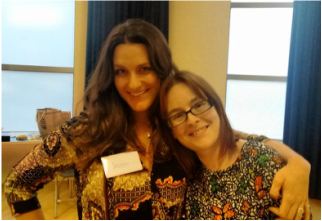 And that is exactly what Jessica shared with us - in two amazing, inspiring, generous days. The workshops were specially designed around a combination of my vision for the day and what the participants had said (in an anonymous survey) they wanted to gain from it. The two days were slightly different - with different groups of players bringing their own backgrounds, experiences and ways of playing, and Jessica adapting wonderfully to each one. There was less playing than you might expect from a typical flute day, but the point was to explore those things behind our playing, which can make as much difference as all the technical exercises in the world. We experimented with movement whilst playing, drawing on the other favourite activities we'd talked about - walking, dancing, playing the flute whilst pretending to dig the garden! - breaking away from the idea that you must always stand upright and still. We worked through custom-made workbooks, which delved into what we wanted to grow in our playing, what inspires us, what we really love and believe about music. As so many of the players had said they wanted to feel confident, Jessica had designed an activity which dug into finding out what we actually mean when we talk about confidence - what will confidence look and feel (and even taste and smell!) like to each of us? A lot of this work was challenging, emotional, difficult - but assured by our agreement to Jessica's rule that "what happens in Vegas, er, the flute workshop, stays in the workshop", people opened up, let themselves be vulnerable, realised things about themselves and their relationship to music. 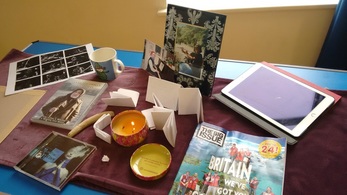 Before the workshop, Jessica had asked everyone to bring a few items - something which inspired their music-making, a piece of music they'd love to play, and something which represented their alter ego (this last one caused some head-scratching in the week running up to it, I can tell you!). After talking about our inspirational objects, we created an 'alter of inspiration' - a sort of 'sacred space' of those things that meant so much to us. We explored our pieces of music, using a set of prompts about how to approach a score - what can we find out from the printed music, and what can we not? What decisions of our own can we make about how to play it? What shapes, colours, ideas does it suggest to us? Jessica introduced us to some Brazilian Choro, and helped us use the same techniques to look at how to approach an unfamiliar genre (I think many of us may have then rushed home to listen to more Choro and buy some music - what a gorgeous sound!). 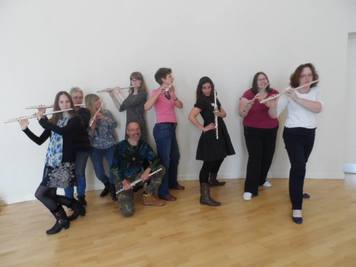 And the alter egos?! We talked about what we'd brought with us - and indeed how hard it had been to choose something - and Jessica led us through an activity (inspired, if I remember rightly, by The Inner Game of Music) where we tried out 'putting on' those alter egos (and their associated clothing/ accessories - shoes featured quite prominently one day, and what amazing shoes they were!). This was quite remarkable - hearing the difference between people's playing when they played as their normal selves, trying to 'get it right', compared with when they pretended to be another version of themselves, was astounding. Even when the person themselves wasn't sure it had made a difference, those of us listening were amazed. I heard sounds coming out of some of my students and flute choir members that I'd never heard before, saw them lose themselves in the music in ways that actually made me shed a little tear. I was struck by the fact that everyone, no matter what their background and experience, felt that they weren't confident enough, that their playing wasn't 'good enough', that they weren't the sort of person who could do certain things, and that all of them to some extent had those perceptions challenged. 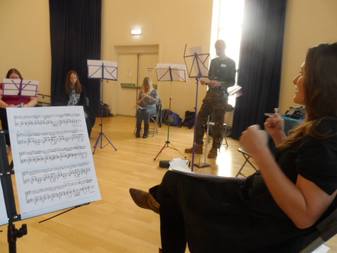 So, what a weekend... it was exhausting and emotional, but as often is the case, that was surely the sign of an experience worth having. I'm so grateful to Jessica for making sense of my rambling emails and phone calls and creating a workshop that did everything I had hoped for and more - made people think, put the power in their hands and truly appreciated and valued every single person who was there. And as Jessica said at the start of each day, huge kudos to the players, who committed a whole day of their weekend - time, money, mental effort and emotions - to their flute playing, their musical journey and themselves. and joined in even when it was nervewracking. If you don't already follow Jessica's blog, pop over to http://jqflute.com/ now for a dose of beautiful, honest writing about flute playing. And if you loved the workshops, or if you missed them this time, keep an eye on www.sheffieldflute.co.uk/events and come and join us next time!
0 Comments
Your comment will be posted after it is approved.
Leave a Reply. |
Keep in touch
I have an email newsletter where I share my latest blog posts, news from the flute and wider musical world, my current projects, and things I've found that I think are interesting and useful and would love to share with you. Expect lots about music and education, plus the occasional dip into research, language, freelance life, gardening and other nice things. Sign up below! Archives
July 2019
Categories
All
|
 RSS Feed
RSS Feed
